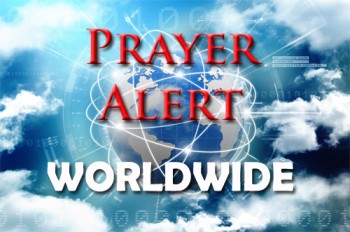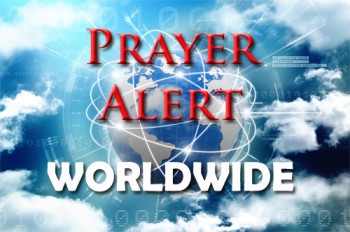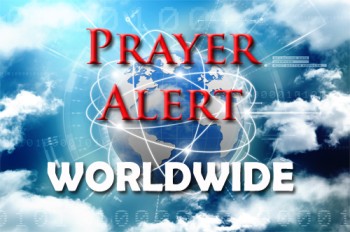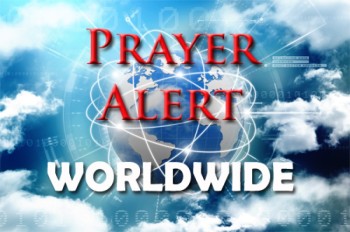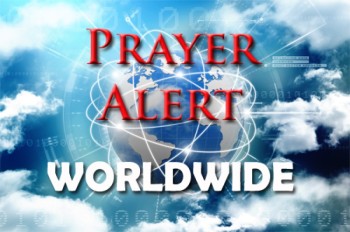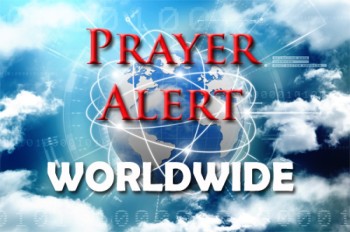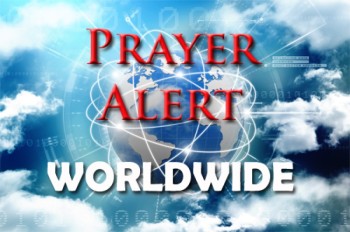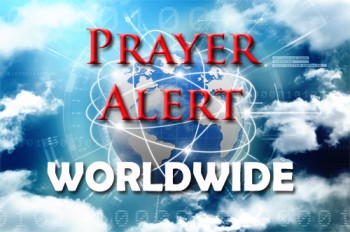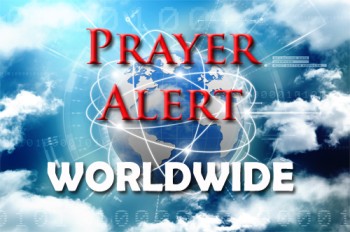Displaying items by tag: Africa
Somalia: drought and deaths
11-year-old Dahir's brother died of hunger. His two sisters are fighting sickness and malnutrition caused by drought. Authorities want the international community to recognise the crisis as a famine. ‘I'm worried about my sisters. I wash them. I wash their faces’, says Dahir, glancing at six-year-old Mariam, coughing hoarsely and complaining of headache, and four-year-old Malyun, lethargic with sunken eyes. Measles and pneumonia are rampant, killing many younger children with immune systems weakened by malnutrition. At hospitals’ intensive care wards, doctors and nurses insert fluid drips into emaciated infants' arms and oxygen tubes into tiny nostrils. Children's limbs are dark and blistered as if severely burnt - a painful reaction to prolonged starvation. The hospital's head doctor said, ‘The world is paying attention to Somalia's drought now. We see visitors from international donors. But that doesn't mean we are getting enough support. I hope it will come soon. It is a desperate situation.’
Uganda: schools close due to Ebola
Uganda’s education minister has decided to shut all types of schools from 25 November after 23 Ebola cases were confirmed among pupils and eight children died. The virus circulating in Uganda is the Sudan strain of Ebola, for which there is no proven vaccine, unlike the more common Zaire strain which spread during recent outbreaks in neighbouring DR Congo. Ebola is spread through bodily fluids; common symptoms are fever, vomiting, bleeding and diarrhoea. Outbreaks are difficult to contain, especially in urban settings. Ebola generally kills about half the people it infects. The decision to close all schools came because densely packed classrooms were making students highly vulnerable to infection. On 5 November the three-week lockdown on Mubende and Kassanda districts, which are at the centre of the outbreak, was extended. The measures include dusk-to-dawn curfews, banning personal travel, and closing markets, bars and churches.
Nigeria: religious freedom
Mubarak Bala, an outspoken Nigerian atheist, was sentenced to 24 years in prison after pleading guilty to blaspheming Islam. The landmark case placed freedom of religion and expression under new scrutiny. A BBC Africa documentary entitled ‘The cost of being an atheist’ revealed the challenges which atheists face regarding freedom of speech and thought. Many disengage from social media activities because emotions and outrage are high. Once people discover someone is not a Muslim, they target them. Despite being a minority atheists face discrimination, harassment and persecution in the Muslim north and also in the Christian south.
DRC: UN troops make ‘strategic withdrawal’
The United Nations peacekeeping mission in the Democratic Republic of the Congo (DRC) has withdrawn troops from the eastern military base of Rumangabo, ceding ground in the battle against the M23 rebel group. M23 resumed fighting and accused the DRC government of failing to honour an agreement to integrate its fighters into the army. The fresh clashes saw the rebel group make advances across North Kivu province. The loss of the key military base is a setback for DRC and a further blow to the security outlook in the conflict-hit east. Thousands remain displaced from the region. Kiwanja’s fall is another humiliation for the government in Kinshasa. It raises serious questions, once again, as to how an extremely small rebellion can do this on their own. UN experts found solid evidence Rwanda had been providing military aid to M23 in eastern DRC. Rwanda’s government has disputed the findings.
Ethiopia: Warring parties agree a ‘permanent cessation of hostilities’
The Ethiopian government and the Tigray People’s Liberation Front (TPLF) have agreed to permanently end hostilities, in a significant step toward ending the grinding war that has seen thousands killed, millions displaced, and millions more in urgent need of food assistance after two years of conflict. Tigray rebels will eventually ‘disarm’ and have agreed on a detailed program of disarmament, demobilisation, and reintegration for the TPLF combatants, taking into account the security situation on the ground. There will be ‘systematic, orderly, smooth and coordinated disarmament, restoration of services, unhindered access to humanitarian supplies, protection of civilians, especially women children and other vulnerable groups.’ The peace process has been fitful until now. The African Union (AU) representative said, ‘This is not the end of the peace process but the beginning of it.’ An AU high-level partner will be tasked with monitoring, supervising and implementation.
Two more former Chibok schoolgirls found
Boko Haram abducted 276 Christian girls from Chibok School in 2014. Girls were whipped and forced into marriage. Some experienced mock executions for refusing to become Muslims. Yana and Rejoice, now young women with children of their own, were among the captives and were recently recovered with their children by the Nigerian Army. Yana Pogu has four children, two boys and twin girls. Rejoice Sanki has two children. They are undergoing medical examinations before being passed over to the care of the Borno government.
Ethiopia: Pray for change
In Ethiopia’s first free and fair election last year, after decades of repressive rule, the Prosperity Party won. However, an opposition boycott and the war in the Tigray region that left many dead and two million people displaced overshadowed the election. Prime Minister Abiy Ahmed has now lifted a ban on opposition parties, released tens of thousands of political prisoners, and is opening up one of Africa’s last untapped markets. Praise God that the Inter-Religious Council has declared a week of prayer. Pray that calls for peace will be amplified on all fronts as the prayers are broadcast on religious and secular television channels and pray that the ethnic battle will stop. Pray that the frightened people will receive encouraging counselling to release their stress and anxieties in productive ways. Pray that in the new regime, multitudes will hear the Gospel and many will accept Jesus Christ as their Saviour. May they be trained to grow in faith through the efforts of the Churches.
Libya: A nation in turmoil
Libya’s government has been unstable for a decade. The situation for Christians changed drastically after Gaddafi’s regime fell. Weapons and Islamist ideologies such as Ansar al-Sharia, Nusra Front, and ISIS began hunting down Christians. The world will never forget ISIS beheading Coptic Christians on Libya’s beach. We praise God that a Christian ministry was able to visit Libya for a week recently and was warmly welcomed as they encouraged many people and shone the bright light of Jesus Christ in this difficult-to-reach nation. Thank God for the global Christian communities and individuals who are praying for the Libyans with love and sympathy. May more avenues be opened for Christians to enter and encourage the persecuted Libyan church. Pray for Christians to gain greater religious freedom to spread the gospel and be able to follow Jesus openly and pray for the believers who are arrested and mistreated because of their faith.
Nigeria: dangers of being religious in a religious nation
Religious intolerance in one of the most religious countries in Africa is dominating debates ahead of next year's elections. It is rare to find anyone not devout in the mainly Muslim north or mainly Christian south. There is no official religion. Although they are guaranteed religious freedom the religious minorities live in fear. ‘We don't have freedom to worship. You are in trouble if you dress like a Muslim. We hide our religion.’ said Ibrahim, a Muslim in southern Nigeria. Obinna Nnadi once lived in the north but felt it was not safe to practise Christianity, so she moved her family south. Islamic law is in place in much of northern Nigeria. Rev Caleb Ahima, vice-president of the Christian Association of Nigeria, acknowledges that religious discrimination is a consequence of location. Meanwhile Odinani, the African traditional religion before Christianity, is making a comeback with younger people who are also facing intolerance and aggression.
Kenya: food crisis
‘Our efforts have been fruitless,’ said a Christian farmer in northern Kenya. ‘Wild animals are invading our farms and eating everything - hippos, elephants, buffaloes. Families have been struggling with nothing to eat.’ This is another problem added to the prolonged drought biting ever deeper. Crops fail, livestock perish, and the all-important water source, the Tana River, dwindles and dries up. Children in northern Kenya have already begun to die of hunger. Barnabas Aid is continuing to feed Christians in that area, where our fellow-believers are a minority and do not get help from the main aid agencies in the area. The rainy season, October to December, is forecast to be short and light across most of the country.
